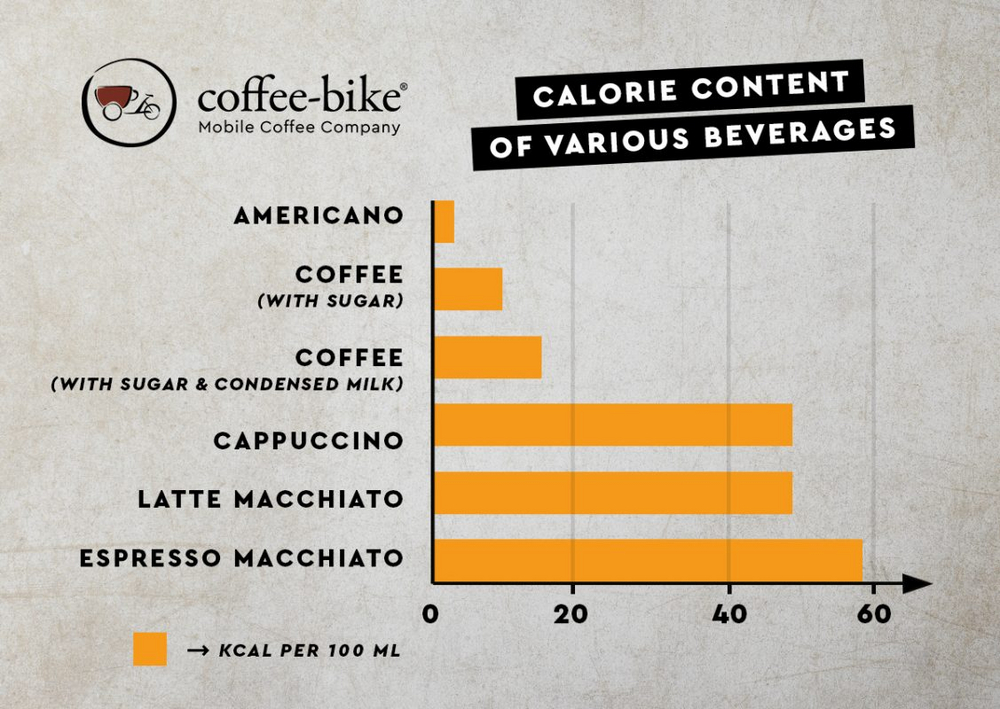Coffee and Insulin – Impact on Blood Sugar Levels
Coffee has an effect on influencing blood sugar levels and insulin sensitivity. Some studies show that caffeine can temporarily decrease insulin sensitivity, meaning the body becomes less responsive to insulin. This can be problematic for people with Type 2 diabetes, as it makes blood sugar control more difficult. On the other hand, regular coffee consumption can lower the risk of developing Type 2 diabetes. The reason: The antioxidants in coffee help prevent oxidative stress in the body's cells. Currently, there are conflicting results from various scientific studies on this matter.
How Much Coffee per Day is Healthy?
Our favorite beverage, coffee, is a daily companion for many, but how much of it is actually healthy? While caffeine can have positive effects on the body, an excess can lead to unwanted side effects. Not everyone reacts the same way to caffeine – the right amount can vary individually. Particularly during sensitive life stages like pregnancy, coffee consumption should be consciously limited. "In moderation" is often measured as up to 3 cups per day.
The Optimal Amount – How Much Coffee is Safe?
When consumed in moderation (up to 3 cups per day), coffee has no negative effects for most people. However, too much caffeine can sometimes cause sleep disturbances, nervousness, and an increased heart rate. More than 4 cups daily (about 400 mg of caffeine) can, over time, increase the risk of health problems such as high blood pressure and tooth discoloration. The key factor is individual tolerance, which determines how much coffee is healthy for you. No worries! Coffee is an absolute treat, and when you treat it that way, you can enjoy it regularly without concern. That's why at Coffee-Bike, we exclusively prepare high-quality coffee specialties that focus on taste, experience, and enjoyment. You should treat yourself to one as a reward, for a quick break, or even share one with friends.
Are There Individual Differences in Caffeine Tolerance?
Yes, caffeine tolerance differs from person to person and depends on genetic factors, metabolism, and habit. While some people can easily drink several cups of coffee a day, others may experience heart palpitations or sleep issues with even small amounts of caffeine. Age and overall health also influence how quickly caffeine is metabolized. Those who often experience nervousness or stomach issues after drinking coffee should consider reducing their intake or switching to decaffeinated alternatives.
Coffee and Pregnancy – What Should Be Considered?
During pregnancy, it is recommended to significantly reduce caffeine intake, as caffeine passes through the placenta to the baby. This equates to about two cups of coffee per day. This reference value also applies to tea and caffeine from other foods. Excessive caffeine intake can increase the risk of complications, such as low birth weight. Additionally, during pregnancy, the body metabolizes caffeine more slowly, meaning it stays in the blood for longer. For those who want to play it safe, switching to decaffeinated coffee or enjoying alternative beverages from our product portfolio is an option.
Coffee and Hydration – Does Coffee Dehydrate the Body?
Coffee is often referred to as a diuretic, which leads many people to believe that it dehydrates the body. But is that true? In fact, caffeine has a mildly diuretic effect, especially in people who rarely drink coffee. However, the liquid content in coffee largely counteracts this effect, so coffee in moderate amounts cannot lead to dehydration. When consumed in moderation, coffee can actually contribute to daily fluid intake. But how much water does a cup of coffee really replace?
Myth or Truth: Does Coffee Have a Dehydrating Effect?
For a long time, coffee was considered dehydrating, but studies show that this effect is minimal. While caffeine does stimulate the kidneys to excrete a little more fluid, the fluid loss is not significant. Especially with regular coffee consumption, the body becomes accustomed to caffeine, and the diuretic effect decreases. This means that coffee in normal amounts does not have a negative impact on the body's fluid balance.
Coffee as a Source of Fluids – How Much Water Does a Cup of Coffee Replace?
Since coffee is mainly composed of water, it does contribute to daily hydration. Studies show that a cup of coffee has nearly the same hydrating effect as the same amount of water. However, coffee should not be the sole source of fluids, as caffeine in high amounts has other effects on the body (as mentioned above). An ideal fluid intake includes water, herbal teas, and other unsweetened beverages. Those who consciously integrate coffee into their daily routine can confidently consider it as part of their daily fluid intake.
Conclusion – How Does Coffee Affect the Body?
The caffeinated hot beverage is more than just a pick-me-up – it enhances concentration, can relieve headaches temporarily, and helps with hydration. At the same time, there are a few aspects to consider, such as individual caffeine tolerance and potential side effects from excessive consumption. Whether coffee is healthy or unhealthy largely depends on the amount and personal response to it. So, what are the key takeaways?
Key Takeaways at a Glance
• Concentration & Performance: Coffee temporarily boosts mental performance and alertness.
• Metabolism & Fat Burning: Caffeine stimulates metabolism and may slightly boost fat burning.
• Health Benefits: Coffee contains antioxidants and is associated with a lower risk of certain diseases, such as Type 2 diabetes.
• Fluid Balance: Coffee contributes to daily fluid intake and does not dehydrate in normal amounts.
• Side Effects: Too much coffee can cause nervousness, sleep disturbances, or stomach issues, especially in sensitive individuals.
• Individual Tolerance: Some people are more sensitive to caffeine than others – the optimal amount is personal.
Our Conclusion: When consumed in moderation, coffee is harmless for most people and may even offer health benefits.
Should You Adjust Your Coffee Consumption?
Whether an adjustment to your coffee consumption is necessary depends on several factors. If you often experience sleep disturbances, nervousness, or stomach issues, it may be wise to reduce consumption or switch to alternatives. However, if you tolerate coffee well and don’t experience any negative effects, there’s no reason to avoid up to four cups of coffee per day.
If you're looking for high-quality coffee that can fit into your daily routine, Coffee-Bike offers an excellent solution. With organically certified Caferino espresso beans and a selection of organic milk and milk alternatives, you can be sure you’re enjoying a top-tier drink without guilt. The key here is quality over quantity. In the spirit of enjoyment, treat yourself to a special coffee specialty at Coffee-Bike instead of burdening your body with excessive filter coffee in search of a caffeine kick.
With this coffee knowledge, you can integrate your favorite beverage into your daily life without any worries. Simply check the Coffee-Bike map to find a mobile coffee bar near you, or plan your next event with Coffee-Bike as the coffee catering highlight. If you are thinking about starting your own business in the coffee sector, learn more about the possibilities of opening a coffee shop and become part of a successful mobile coffee shop concept.




